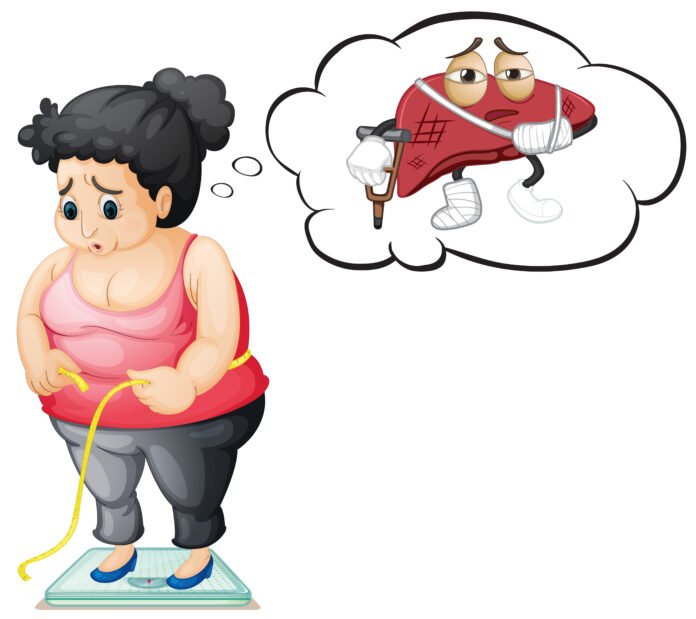As women age, their bodies go through numerous changes, with menopause being one of the most significant. A common and often frustrating challenge during this transition is managing weight gain. Understanding the connection between your health and weight is crucial, as the number on the scale can impact your overall well-being. While weight gain during menopause is a frequent concern, it is not an insurmountable issue. With the right approach to diet, exercise, and lifestyle, you can effectively manage and even reverse unwanted pounds.
What is Menopause?
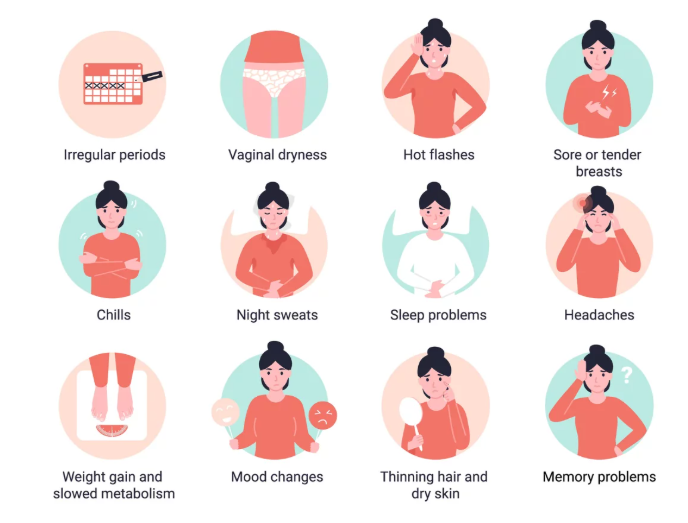
Menopause is a natural biological process that marks the end of a woman’s menstrual cycles. It typically occurs in a woman’s 40s or 50s and signifies a decline in reproductive hormones, primarily estrogen. This hormonal shift means ovulation ceases. In India, the average age for menopause aligns with this global range. The hormonal fluctuations during this time are a primary driver of changes in body composition, particularly an increase in abdominal fat. This isn’t just a cosmetic concern; this type of weight gain can increase the risk of developing health issues like cardiovascular disease and type 2 diabetes.
Why Does Menopause Cause Weight Gain?
The hormonal changes of menopause are a key reason for weight gain, especially around the midsection. However, it’s often a combination of factors:
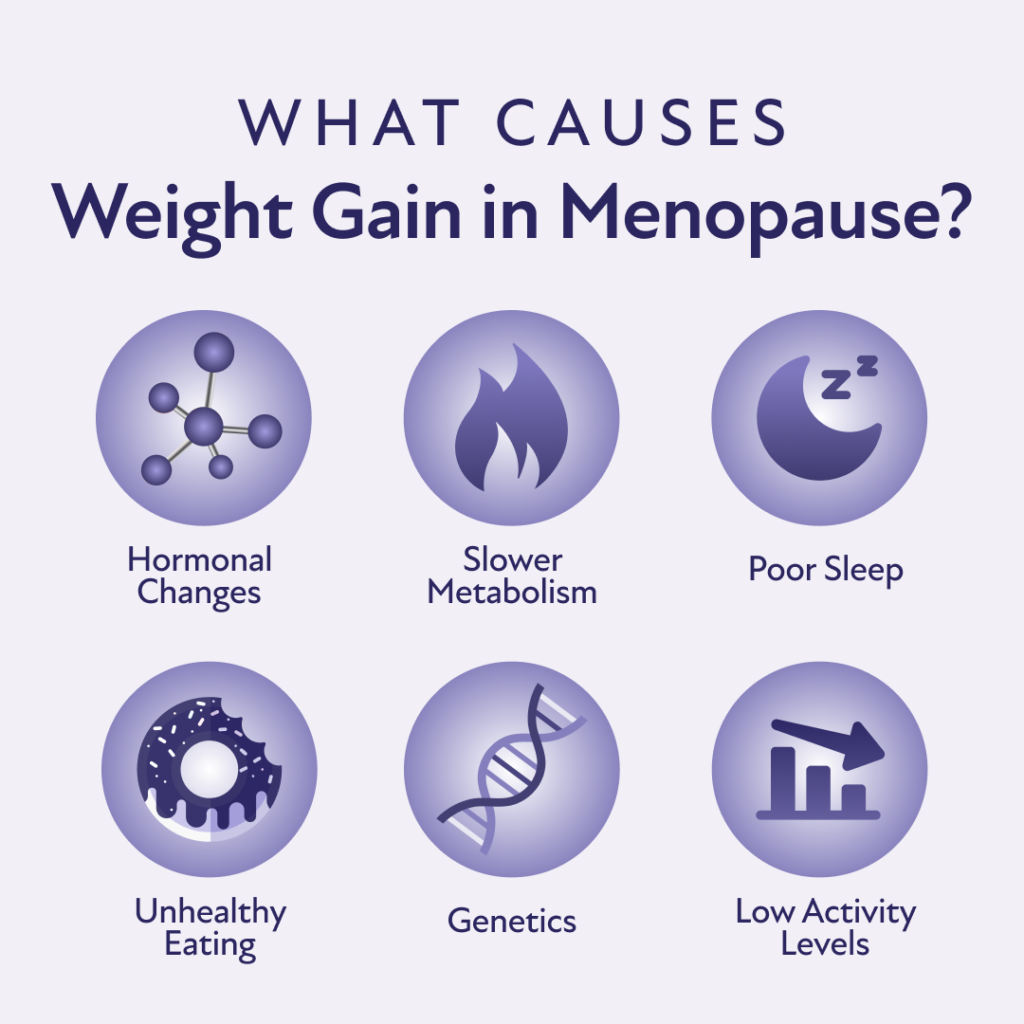
- Hormonal Shifts: Lower estrogen levels can lead to an increase in fat storage, particularly in the abdominal area, rather than the hips and thighs.
- Slowing Metabolism: As you age, your metabolic rate naturally declines, meaning your body burns fewer calories at rest.
- Lifestyle Factors: A lack of regular exercise, unhealthy eating habits, and poor sleep can significantly contribute to weight gain. Insufficient sleep, for instance, can disrupt hormones that regulate appetite, leading to increased cravings for high-calorie foods.
Health Risks of Menopause-Related Weight Gain
Excess weight, particularly abdominal fat, accumulated during menopause is linked to several serious health complications, including:
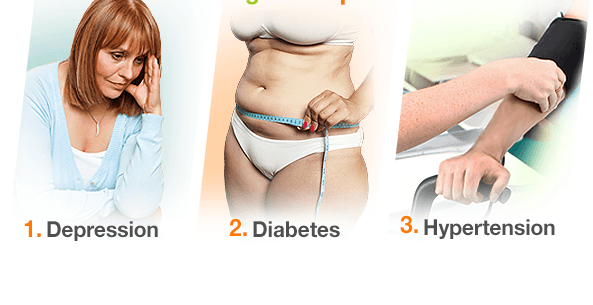
- Heart disease
- Type 2 diabetes
- Breathing problems
- Increased risk of certain cancers, such as breast and endometrial cancer.
Common Symptoms and Body Changes During Menopause
Beyond weight gain, menopause brings about other physical changes due to a slower metabolism and hormonal shifts:
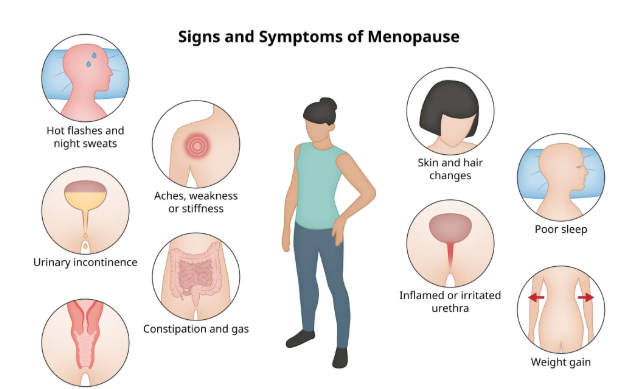
- Skin and Hair Changes: You may experience vaginal dryness, changes in hair growth patterns or hair loss, and drier skin with a loss of elasticity, leading to fine lines and wrinkles.
- Fat Redistribution: The decrease in estrogen causes a shift in where your body stores fat. This often results in a change in body shape, with more fat accumulating around the abdomen.
- Emotional Well-being: These physical changes can sometimes impact self-esteem, potentially increasing the risk of depression or affecting intimacy.
Other Factors Contributing to Weight Gain After Menopause
While hormonal changes are central, other elements can play a role:
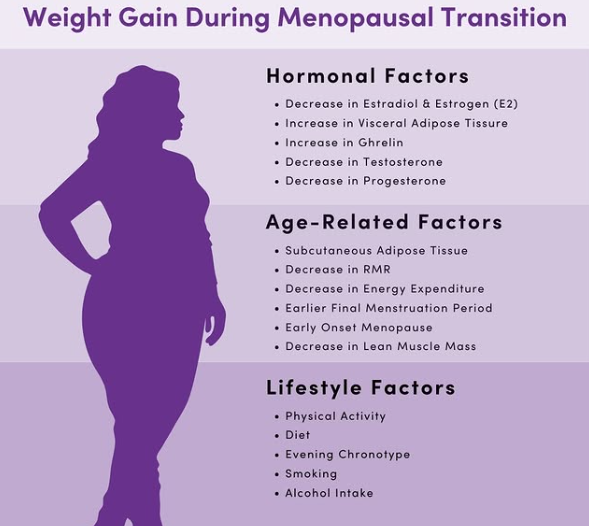
- Age: The natural aging process itself contributes to changes in body composition and metabolism.
- Genetics: If your parents experienced similar weight-related issues, you might be more predisposed.
- Reduced Physical Activity: A more sedentary lifestyle can lead to weight gain.
- Medications: Certain medications for other health conditions can have weight gain as a side effect.
Tips to Manage Menopause Weight Gain
You have the power to manage your weight during this transition. Consider these strategies:
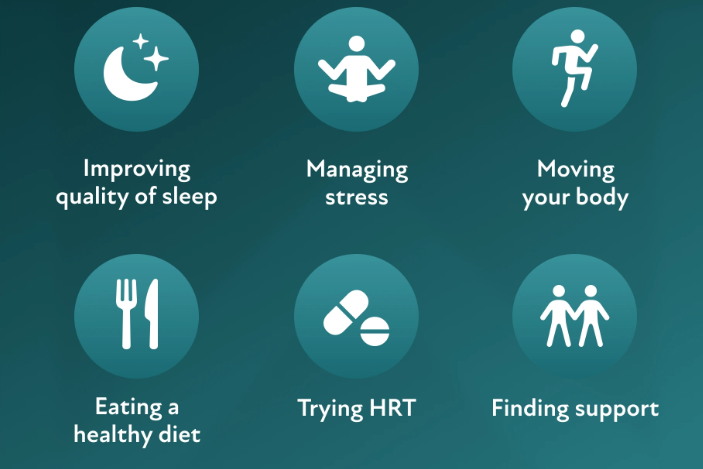
- Adopt a Healthy Diet: Focus on a balanced diet rich in whole foods and consider lowering your intake of simple carbohydrates.
- Engage in Regular Exercise: Incorporate regular physical activity into your routine. Aerobic exercises like walking, jogging, and swimming are excellent for burning calories and reducing abdominal fat.
- Practice Yoga: Yoga can be particularly effective in reducing abdominal fat and improving overall well-being.
- Be Mindful of Your Eating Habits: Avoid overeating and try to have your meals at consistent times.
- Limit Alcohol Consumption: Alcohol can contribute to excess calorie intake and weight gain.
- Embrace an Active Lifestyle: Participate in outdoor activities that you enjoy. This will not only help with weight management but also boost your mood.
- Reduce Sugary Foods: Cut back on sugary treats like candies, pastries, and sweetened beverages that lead to fat storage.
- Practice Body Positivity: If genetics play a role in your body shape, embrace and love your unique body.
- Consult a Doctor: If you are struggling to manage your weight despite your best efforts, seek professional medical advice. A doctor can help create a personalized plan to manage your symptoms and weight.
Key Takeaway
Menopause is a natural and significant phase in every woman’s life, bringing about various physical and emotional changes. While weight gain is a common symptom, it is often influenced by a combination of hormones, age, and lifestyle. By taking proactive steps—such as embracing a healthy diet, staying physically active, and making positive lifestyle choices—you can effectively manage your weight and reduce the risk of associated health problems, leading to a healthier and happier life through menopause and beyond.
